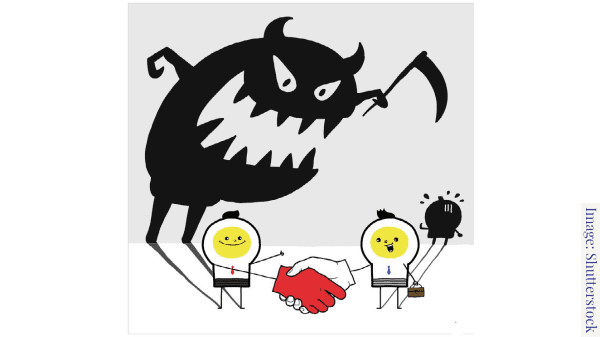Being described as a “technical trader” is not usually meant as a compliment. Both buyers and sellers can have this term pinned on them.
Technical traders seem to enjoy outmaneuvering their trading partners with contractual technicalities. If you do not understand your rights and responsibilities when buying or selling wholesale quantities of fresh produce, you may be vulnerable.
Are you prepared for a technical trader? Let’s find out with 10 true/false questions based on Blue Book’s Trading Guidelines. And if you haven’t read these guidelines, that’s not a problem.
Familiarity with Perishable Agricultural Commodities Act (PACA) regulations, PACA precedent, and the Uniform Commercial Code—either directly or through your years of trading experience—is all you need to answer these questions.

#1 Contract Formation
True or False: A pricing sheet published by a seller represents a binding offer. If the seller doesn’t provide the product on its pricing sheet at the listed price, that’s a breach of contract.
False – from Section (3.0): an offer to buy or sell produce, whether written or verbal, grants the offeree the power to accept the offer and bind the offeror to his or her offer. For a communication to qualify as an offer, it must create the reasonable expectation in the offeree that the offeror is willing to enter into a contract based on the offered terms.
What constitutes a reasonable expectation will depend on such factors as the specific language used, the surrounding circumstances, and industry custom and practice. For example, a pricing sheet sent to multiple prospective buyers would ordinarily be deemed to be an invitation to prospective buyers to make an offer, but not a legally binding offer.
#2 Price-After-Sale
True or False: A buyer doesn’t need to provide an account of sales to support its returns when the product is sold on a price-after-sale basis.
True – from Section (2.3): price-after-sale buyers are not required to provide a detailed (i.e., per carton) accounting under PACA; however, a price-after-sale buyer that refuses to provide a detailed accounting may be found to have failed to support its proffered returns. Conversely, when product is handled on consignment, a detailed account of sales is required by PACA regulations.
#3 The Warranty of Suitable Shipping Condition
True or False: When a truck driver signs the bill of lading “clean,” the carrier warrants the product was loaded in suitable shipping condition.
False – from Section (2.6): the warranty of suitable shipping condition is the seller’s promise that the produce it loads on the truck or other conveyance will arrive at contract destination without abnormal deterioration provided transportation conditions are normal.
Unless specifically excluded, this warranty applies when produce is sold on an FOB (free on board) or similar basis where the risk of loss in transit passes to the buyer at shipping point.
#4 Good Arrival Guidelines
True or False: Good Arrival Guidelines help define what is abnormal deterioration at destination.
True – from Section (9.3): the Good Arrival Guidelines published by PACA and the DRC (Canada’s Dispute Resolution Corporation) help define what “abnormal deterioration” is for the most commonly traded commodities following normal transportation to the contract destination unless the parties have agreed otherwise by contract. Timely U.S. Department of Agriculture (USDA) and Canadian Food Inspection Agency (CFIA) inspection certificates are used to quantify the quality and condition of the produce in question
#5 Transportation Conditions
True or False: Abnormal transportation conditions void the warranty of suitable shipping condition; therefore, when a truck delivers 24 hours late the Good Arrival Guidelines do not apply.
False – from Section (2.6): technically speaking, abnormal transportation conditions do not “void” the warranty of suitable shipping condition. But abnormal transportation may make it difficult or impossible to prove (by a preponderance of the evidence) that the seller failed to load the product in suitable shipping condition.



